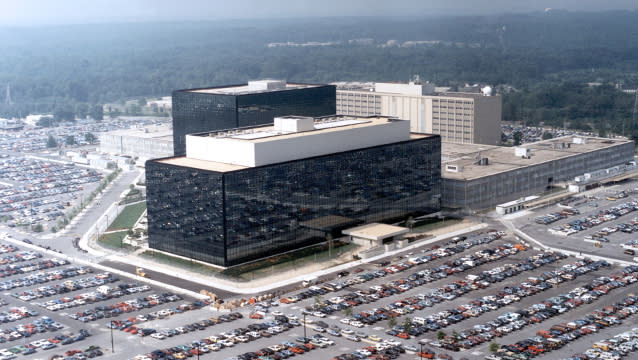Americans Freak Out As They Realize How Much Data The Government Collects

News stories published over the past couple of days have revealed just how much information the U.S. National Security Agency collects about the communications of hundreds of millions of people around the world.
The Guardian, for example, reported that Verizon has been sending the U.S. government "metadata" about all of its telephone records so the government can analyze who is talking to who, when, and where.
The Washington Post followed up with an even more shocking story, which said that the government "directly [taps] into the central servers" of Google (GOOG), Yahoo (YHOO), Microsoft (MSFT), Facebook (FB), and other leading tech companies and monitors communications in real time." One of the Post's sources on that story, described as a "career intelligence officer," was said to be so horrified by the power of this surveillance program that the officer voluntarily exposed it.
Other news organizations have since confirmed the existence of this surveillance program, called PRISM, but Apple, Yahoo, Facebook, and Google have since explicitly denied that the government has "direct access" to its servers. The Washington Post originally reported that the companies "knowingly" participated in the surveillance program, but it has since removed that assertion. (An earlier Wired story suggests that the government may have engaged foreign companies to collect and store information as it passed through global networks, rather than tapping into the company servers).
Not surprisingly, the revelation that the U.S. government collects and analyzes trillions of global communications has freaked out not just privacy advocates but ordinary citizens.
And now that the extent of the government's intelligence program has been revealed, it's certainly worth having a national conversation about how much information the government should have access to and what legal hurdles investigators should have to clear when they collect and analyze specific information about specific people.
One thing that should not surprise anyone, however, is that the government considers Internet-based communications and secrecy critical to national security. Similarly, no one should be surprised that U.S. companies are expected to provide data to the government when requested (the companies have done this for years).
If we want our government to have any chance of protecting the country against terrorist attacks and other threats, we have to allow the government to collect, analyze, and investigate communications data. And given that most important communications now flow through the Internet and telecom networks, we have to give the government the power to analyze at least some of these communications.
The key is to empower the government to do this without so compromising the rights and privacy of innocent people that we turn the country (and, really, the world) into a Big Brother surveillance state.
And given that the full scope of the government's digital intelligence effort is finally coming into focus, it's worth reviewing the checks and balances that are in place and where we should draw the lines.
Tell Us What You Think!
Got a topic you’d like covered? Have a guest you’d like to see interviewed? Send an email to: thedailyticker@yahoo.com.
You can also look us up on Twitter and Facebook.
More from The Daily Ticker:
This Rally Has Been Based on a “Fantasy,” Says Peter Schiff
Meredith Whitney: The 'Shocking' Details Behind California's Budget Surplus
